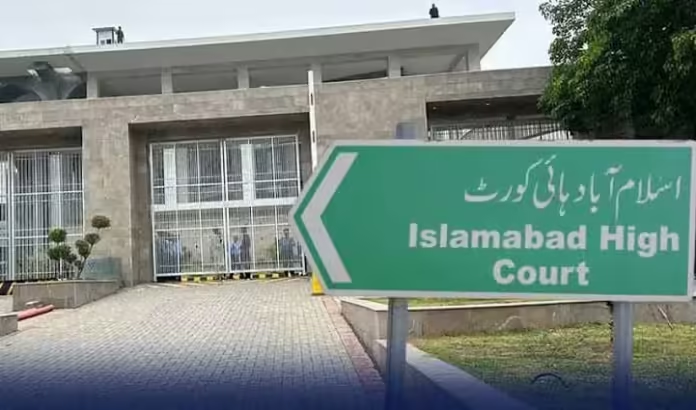Islamabad High Court Steps In: Questioning CTO Captain on Crackdown on Unlicensed Drivers
In a dramatic turn of events, the Islamabad High Court (IHC) has issued a notice to Chief Traffic Officer (CTO) Captain (Retd.) Hamzah Humayun, demanding clarification on the legality of his department’s aggressive campaign against unlicensed drivers. The move comes after a citizen filed a constitutional petition challenging the recent directives of the Islamabad Traffic Police (ITP), which have sparked widespread debate across the capital.
The court’s intervention has now brought the controversial enforcement drive under judicial scrutiny, raising questions about whether the traffic department overstepped its legal authority.

The Petition: Challenging the Crackdown
According to the petition, the ITP’s recent campaign — which includes impounding vehicles and detaining unlicensed drivers — exceeds its lawful powers. The petitioner cited the **Motor Vehicle Ordinance of 1965, emphasizing that the law prescribes a fine for driving without a valid license but does not authorize arrests or vehicle confiscation.
The citizen argued that such coercive actions amount to a “misuse of administrative power” and violate Article 10-A of the Constitution, which guarantees the right to a fair trial. The petition requested the court to suspend the ongoing campaign until the matter is reviewed and any new enforcement rules are properly legislated.
The Court’s Directive: CTO to Appear Personally
Following the initial hearing, the Islamabad High Court directed CTO Captain (Retd.) Hamzah Humayun to appear in person at the next session. The court asked the officer to explain under which legal provisions the current measures were implemented and whether proper authorization had been obtained.
This directive signals the court’s serious concern over administrative boundaries and the protection of citizens’ rights under the law. It also highlights the judiciary’s growing role in ensuring accountability within public departments.
Public Reaction: Applause and Concern
The court’s notice has stirred strong reactions among Islamabad’s citizens. Many residents have applauded the judiciary for stepping in, viewing it as a “sign of hope for fair governance.” Social media platforms were flooded with messages supporting the court’s stance, with users emphasizing that while road safety is vital, enforcement must remain within legal and constitutional limits.
Others, however, argue that stricter enforcement is necessary to combat the alarming number of unlicensed drivers endangering road safety. They believe that leniency could embolden reckless behavior, suggesting that the issue lies not with the crackdown itself but with the lack of legal clarity guiding such measures.
Legal Experts Weigh In
Legal analysts believe the case could have far-reaching implications for administrative authority and due process in Pakistan. If the petitioner’s arguments are upheld, the ongoing campaign may face suspension or modification. Furthermore, future enforcement operations of this nature might require explicit authorization from the **Federal Cabinet or Parliament.
“This case is a defining moment for administrative law in Pakistan,” noted a constitutional expert. “It underscores the balance that must be maintained between enforcing discipline and protecting individual rights.”
A Defining Moment for Lawful Governance
As the Islamabad High Court awaits the CTO’s response, the case stands as a test of the limits of executive authority and the strength of judicial oversight. While there is no dispute that driving without a license is unlawful, the larger issue revolves around whether the ends justify the means.
For now, Islamabad’s citizens watch closely, hopeful that the outcome will reinforce the principles of fairness, accountability, and the rule of law — ensuring that justice on the road is served not just swiftly, but rightfully.
Stay tuned to Pakistan Updates for more news and updates.




